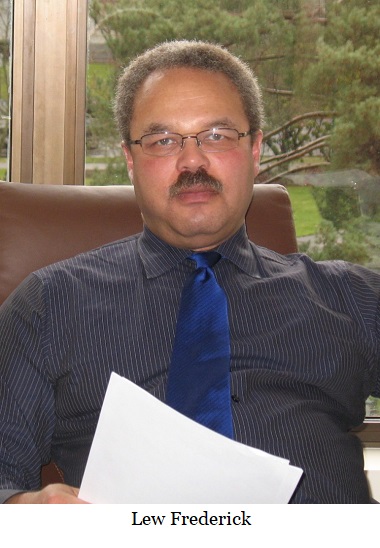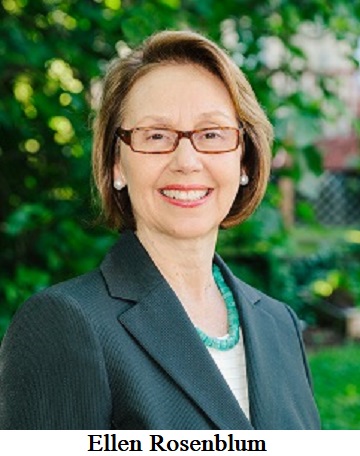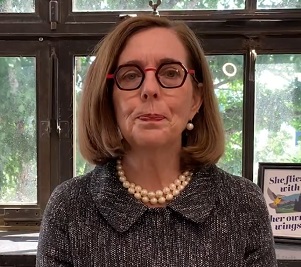
On this day, August 20, 2020, about 100 leftist demonstrators blocked traffic in Portland, vandalized an immigration building, set fires to dumpsters, and threw rocks and glass bottles at police. Police arrested three people.
 Post an Event
Post an Event
| Benton County Republicans’ Private Fundraising Event, “Bent-on Boots and Bling” with Trey Taylor |
| Friday, September 5, 2025 at 5:00 pm |
| Featuring Trey Taylor
Music Private Event
Friday, September 5, 2025 5:00-5:30 pm VIP Reception
5:30-8:00 pm Heavy Appetizers,
Auction, Concert
Red: $750 VIP Reception
Front Row Table Sponsor
White: $500 Table Sponsor
Blue: $50 per person
Limited Seating. Get Yours Now!!!
Support Local
Dress up: Bling, Cowboy, Patriotic Benton County Republican
FUNDRAISER
www.BentonGOP.org
Get your tickets today at:
https://www.bentongop.org/event-details/benton-county-republicans-fundraiser/form
About Trey:
Trey is the youngest African American Man in Country Music History. The Denver Post wrote
"It's impossible to miss his enthusiasm. With a fondness for cowboy boots, gaudy colors and dazzling jewelry, Trey Taylor could stand toe to toe with any of the Pop, Country or even Rap
contemporaries of his generation.“ |
| Trysting Tree Golf Club, 34028 NE Electric Rd., Corvallis |
It will now be known as Oregon Liquor and Cannabis Commission
On August 2nd, the OLCC became the Oregon Liquor and Cannabis Commission, dropping the word “Control†that had defined the agency’s original post-Prohibition mission. Previously referred to as the Oregon Liquor Control Commission, the agency began regulating
recreational marijuana after voters approved Measure 91 in November, 2014.
This change comes five years after voters passed Measure 91 which directed the agency to establish a framework for regulating Oregon’s recreational marijuana marketplace. While the change updates the agency’s name to better reflect its mission, the OLCC acronym will remain the same.
“The industries we regulate matter, they matter a lot to the state of Oregon’s economy,†said Paul Rosenbaum, Chair of the Oregon Liquor and Cannabis Commission. “The cannabis industry in Oregon has become a billion dollar business and changing our agency name reflects our role in generating revenue to fund state programs.â€
Newly issued alcohol and marijuana licenses, and alcohol server and marijuana worker permits, will be modified to include the new name and logo. Existing versions of these official documents continue to be valid with the agency’s previous name and logo, and will be replaced when the licensee or permit holder renews them.
The OLCC will make minor public facing adjustments to reflect the name change. The modifications will have a minimal cost. Exterior signage at OLCC headquarters and regional offices will gradually be brought up-to-date. Documents on the agency website will continue to be updated with the new OLCC logo. The agency will deplete its existing stock of paper documents branded with the agency’s old name and logo. These items will be replenished with the new name and logo when existing supplies are exhausted.

The OLCC was originally created in 1933, in the wake of national alcohol prohibition being repealed by the adoption of the 21st amendment to the US Constitution. At that time, America was laboring to rise out of the “Great Depression†and the world stage was being set for the start of World War II. In 1933, Oregon’s Liquor Control Act became law and directed the OLCC to sell distilled spirits and to license businesses to sell beer and wine.
Agency name changes occur as their mission evolves; however, it’s not common. According to information provided by the State Library of Oregon, during the past 30 years there have been about 10 Oregon agencies that have changed their name. The most recent change was when the State Library itself changed its name in 2017 to clarify that it wasn’t affiliated with Oregon State University.
Now 88 years later, the OLCCs mission has grown to include managing compliance with Oregon’s Bottle Bill, marijuana regulation and oversight of specific aspects of the state’s hemp market. Historically, the OLCC has and continues to play a vital role generating funding for schools, public safety and health programs. In recent years, combined sales from its alcohol and marijuana programs contribute $400 million annually to those vital programs. The success of Oregon’s cannabis market can be measured in the adult-use marijuana market becoming a $1 billion industry in 2020 and projected to continue at that level in 2021.
While establishing a regulated cannabis market has required the investment of financial and personnel resources, the agency has remained committed to supporting bars and restaurants through sensible upgrades to Oregon’s alcohol regulatory environment balanced with public safety protections.
“Our name may have changed, but our mission to serve the businesses we license, the consumers we protect, and the communities we support by generating revenue for the state – all of those things remain the same,†said Steve Marks, OLCC Executive Director. “For the next two years we’re going to concentrate on helping the cannabis and hospitality industries re-establish and grow their business, while ensuring revenue stability for the state. That’s the immediate focus of the Oregon Liquor and Cannabis Commission.
The COVID-19 pandemic uniquely challenged Oregon’s hospitality industry requiring businesses and the agency to innovate to keep businesses open, while constrained by public health guidelines designed to limit the spread of the virus. Agency staff worked directly with licensees, public safety groups and elected officials to find solutions for long-standing challenges. This included: creating an option for cocktails-to-go, while modifying rules to allow for curbside delivery, and enabling businesses to expand outdoor seating.
During the remainder of 2021, the OLCC will be working through other legislative changes to help the alcohol and cannabis industries build back their business. This will include reviewing existing policies and working with partners to cut red-tape and find operational efficiencies while continuing to generate vital revenue for the state of Oregon.
Licensees and others doing business with the Oregon Liquor and Cannabis Commission should still make their payments out to the “OLCC.†So even as the OLCC continues to evolve to better serve Oregon, the acronym will remain the same.
--Staff Reports| Post Date: 2021-08-07 09:43:43 | Last Update: 2021-08-07 21:52:09 |
Applicants must be a US citizen, Oregon resident, and a member of the Oregon State Bar.
Governor Kate Brown has announced that she is accepting applications to fill two new judicial vacancies on the Deschutes County Circuit Court. These new judicial positions were created by the Legislature in Section 8 of
HB 3011, which the Governor has signed.
Interested applicants should mail completed application forms to: Dustin Buehler, General Counsel, Office of the Governor, 900 Court Street NE #254, Salem, OR 97301-4047. Forms must be received by 5:00pm, on Monday, August 23, 2021. Forms emailed by 5:00pm. on the closing date will be considered timely if original signed forms postmarked by the closing date are later received.
Governor Kate Brown fills judicial vacancies based on merit. She encourages applications from lawyers with a wide variety of backgrounds and experiences.
ORS 3.041 and 3.050 provide that at the time of appointment to the court, the candidate must be a citizen of the United States, a resident of Oregon, and a member of the Oregon State Bar.
SB 977, passed by the Legislature in 2019, changed the residency requirement. It amends ORS 3.041 and requires that these vacancies must be filled by persons who are residents of or have principal offices in the judicial districts to which they are appointed or adjacent judicial districts.
For questions about the appointment process, or to request an interest form, contact Shevaun Gutridge at 503-378-6246 or shevaun.gutridge@oregon.gov.
--Staff Reports| Post Date: 2021-08-07 09:18:34 | |
Siletz river levels are following historic norms
The City of Newport has adopted an
Alert Stage 2 Water Curtailment restrictions effective until further notice.
- No use of irrigation systems.
- No vehicle washing.
- No filling of swimming pools or spas, fountains or waterfalls.
- Hotels/motels must post water conservation notices.
- Commercial laundry operations must be delayed as much as is possible.
- Discontinue scheduled flushing of water lines and fire-fighting drills involving water consumption.
- Suspend any planned expansions of water system, including the addition of new connections.

All residents and businesses are required to fully participate in curtailing water use pursuant to the provisions noted above.
On June 28, 2021, the city issued notice of an Alert Stage 1 Water Curtailment. This was done in conjunction with the Lincoln County Commissioner’s declaration of a countywide drought. This was a water system advisory which informed the community of the situation and recommended voluntary water conservation.
The city claims that "At that time, the Siletz River, which is the main supply for the Big Creek Reservoir, had been experiencing declining flows. Siletz River flows continue to decline." The graph from the US Geological Survey shows that Siletz river levels are following historic norms.
The Mid-Coast Water Conservation Consortium, and its member organizations, including the City of Newport, recommended its members adopt an Alert Stage 2 Water Curtailment.
--Staff Reports| Post Date: 2021-08-06 12:11:17 | Last Update: 2021-08-06 12:37:09 |
Real estate agent blows the whistle on racism
Critcal Race Theory is invading many aspects of life and governance in Oregon. Senator Lew Frederick (D-Portland) even introduced a bill during the 2021 legislative session that would have used state funds to pay reparations to Black Oregonians with
SB 619.
That bill failed to pass and was stalled in a committee, however the racial division seems to continue through other state agencies.
A caller named Heather Davidson who called into the
Lars Larson Radio Show has blown the whistle on the Oregon Real Estate Association pushing Critical Race Theory (CRT) racism in their approved licensing exams.
Screenshots with excerpts from the real estate licensing test read as follows:
"In May 2020, the death of George Floyd at the hands of Minneapolis police tore off a scab that has been festering in the United States for decades. The cry of Black Lives Matter (BLM) has focused the nation's attention once again on the inequities that persist in Blacks and other minority groups' ability to obtain housing opportunities that are available to individuals who are not members of specific minority communities."
"The law and REALTOR code of ethics prohibit discrimination based on the seven protected classes of individuals identified under the federal fair housing and additional anti-discrimination laws enacted at the state level. However, regardless of the prohibition against discrimination, the barriers to equity remain..."
Another screenshot reads:
"On the other hand, racism is the systemic subordination of members of a racial group that have relatively little social power. Racism is based on the power to change the law. In this context, a white American cannot be the target of racism because white Americans control a majority vote and can change any laws that harm them. Anyone can be the target of racial prejudice, however, only minority or socially vulnerable groups can be the target of racism. If a law is offensive to the group that holds social or political power, that group can change the law. The same opportunity to change racist laws is not available to minority groups. As we will see later in this course, some laws, such as Fair Housing Laws, have been put in place to help minority populations bridge the power gap and protect against racist laws."
Observers may wonder why the Oregon Real Estate Board thought that having these racist statements on the re-licensing exam was a good idea.
The
Oregon Real Estate Board consists of 7 industry members and 2 public members. ​
Board members are appointed by the Governor. Most terms are between 2-4 years, and all Board members are subject to a 2-term limit.
The Oregon Real Estate Board duties include:
- Providing advice to the Real Estate Commissioner and the Governor's office regarding real estate industry matters.
- Reviewing proposed rulemaking.
- Approving experience waiver requests of real estate license applicants.
- Making recommendations about the license examination process.
- Approving the qualifications of continuing education provider applicants.
Judging people by the color of their skin seems to be absent from their list of duties.
Any board member can be reached by e-mail at
orea.board@oregon.gov
--Staff Reports| Post Date: 2021-08-06 08:53:18 | Last Update: 2021-08-06 08:54:05 |
Lawsuit Says Google Illegally Maintains App Store Monopoly
Oregon Attorney General Ellen Rosenblum and 36 other Attorneys General have filed a lawsuit against Google in California, alleging exclusionary conduct relating to the Google Play Store for Android mobile devices and Google Billing. The Attorneys General also accuse Google of using its dominance to unfairly restrict competition with the Google Play Store, harming consumers by limiting choice and driving up app prices.
“Over time, Google’s anti-competitive behavior has gotten worse,†said Attorney General Rosenblum. “There is no doubt that how we interact with our smartphones is ingrained in every aspect of our lives. It impacts our well-being, our children’s education, our everyday lives. Today’s filing is about ensuring one of the biggest tech powers behind our screens plays by the rules.â€
The lawsuit follows on the heels of former President Donald Trump's
lawsuit against the major tech giants for monopoly behavior in molding public opinion.
The heart of the lawsuit centers on Google’s exclusionary conduct, which shuts out competing app distribution channels. The AGs also allege in the lawsuit that:
- Google imposes technical barriers that discourage or prevent third-party app developers from distributing apps outside the Google Play Store. Google builds into Android a series of security warnings (regardless of actual security risk) and other barriers that discourage users from downloading apps from any source outside Google’s Play Store.
- Google has not allowed Android to be “open source†for many years, effectively cutting off potential competition.
- Google’s required contracts foreclose competition by forcing Google’s proprietary apps to be “pre-loaded†on essentially all devices designed to run on the Android OS, and requires that Google’s apps be given the most prominent placement on device home screens.
- Google “buys off†its potential competition in the market for app distribution.
- Google forces app developers and app users alike to use Google’s payment processing service, Google Play Billing, to process payments for in-app purchases of content consumed within the app. As a result, Google is unlawfully tying the use of Google’s payment processor, which is a separate service within a separate market for payment processing within apps, to distribution through the Google Play Store. Google is able to extract an exorbitant processing fee as high as 30% for each transaction which is many times higher than payment processing fees charged in competitive markets.
In addition to Oregon, this multi-state lawsuit is joined by Utah, Arizona, Colorado, Iowa, Nebraska, New York, North Carolina, Tennessee, Alaska, Arkansas, Arizona, California, Colorado, Connecticut, Delaware, District of Columbia, Florida, Idaho, Indiana, Iowa, Kentucky, Maryland, Minnesota, Mississippi, Missouri, Montana, Nebraska, Nevada, New Hampshire, New Jersey, New Mexico, New York, North Carolina, North Dakota, Oklahoma, South Dakota, Tennessee, Utah, Vermont, Virginia, Washington, and West Virginia.
--Staff Reports| Post Date: 2021-08-05 22:17:18 | Last Update: 2021-08-05 22:28:27 |
Amity School Superintendent Jeff Clark made the case for mask-free, in-person classes
In a 2-1 vote today, the Yamhill County Board of Commissioners approved a letter to Governor Brown supporting local decision-making for Yamhill County schools. The letter recognizes the importance of parents, superintendents and school boards when it comes to making decisions about their individual school districts.
Amity School Superintendent Jeff Clark made the case for mask-free, in-person classes pointing out the Governor’s latest mask mandate for K-12 children is unnecessary and harmful for students. Clark told the Board the smaller, rural schools were taking the lead in Yamhill County and across Oregon by pushing back against mask mandates for children.
Ongoing conversations with the State saw mounting frustration on the part of superintendents after they were threatened with fines and civil actions by the Oregon Department of Education if they violated the mask mandate.
Yamhill County superintendents from Sheridan and Willamina were also in support of a letter opposing mask mandates. Dayton’s superintendent expressed support pending approval from his school board.
Conversations with McMinnville and Newberg superintendents were still ongoing.
The letter read:
The Yamhill County Board of Commissioners supports our county school districts, superintendents, parents and teachers in advocating for local decision making regarding COVID-19 mitigation measures, including whether to require children attending K-12 in-person classes to wear masks during the school day.
Governor, we appreciate your decision in June to shift from a state-centric model and acknowledge that each local school district is guided by a superintendent, school board, parents and advocates who understand and can address the unique circumstances and are uniquely positioned to address the health and well-being of their students.
Superintendents in Yamhill County have asked for a continuation of this community-focused approach and the Yamhill County Board of Commissioners has confidence in their ability tp make reasoned and informed decisions regarding, among other considerations, the masking of children during school hours.
Commissioners Mary Starrett and Lindsay Berschauer voted to approve the letter supporting local decision- making. Commissioner Casey Kulla voted “Noâ€.
--Staff Reports| Post Date: 2021-08-05 21:49:05 | Last Update: 2021-08-05 22:07:18 |
Commission will be advisory only
Oregon Secretary of State Shemia Fagan has announced that she is
inviting Oregonians -- even
illegal aliens -- to apply to serve on the Oregon People’s Commission on Redistricting. Like her predecessors, Secretary Fagan is preparing for redistricting in case she is needed. The People’s Commission will convene only if the Legislature misses its September 27 deadline, and the Oregon Constitution requires Secretary Fagan to conduct redistricting. If convened, the Commissioners will advise Secretary Fagan and her staff as they conduct public hearings and fulfill the Secretary of State’s constitutional duty in legislative redistricting.
“Today, redistricting is the Legislature’s job. While I am optimistic they will pass a redistricting bill by the September 27 deadline, I owe it to Oregonians to be ready to go if they don’t,†said Oregon Secretary of State Shemia Fagan. “I made a commitment to Oregonians to convene a People’s Commission to advise me on redistricting and that is exactly what I am preparing to do.â€
The People’s Commission provides an opportunity for Oregonians, including those with experience working in historically excluded communities, to play a key role in advising Secretary Fagan if the Oregon Constitution requires that she perform legislative redistricting. If convened, the Commissioners will work directly with Secretary Fagan on her commitment to an open public process, including engaging with Oregonians in public hearings and other public education and community engagement opportunities. The Commissioners will attend all public hearings, hear testimony from Oregonians, and advise Secretary Fagan and her staff on redistricting.
Oregonians seeking to serve on Oregon’s People’s Commission must
complete the application at the Oregon Secretary of State’s website by September 2nd. Applicants must be at least 16 years of age and must be an Oregon resident since at least April 1, 2020.
“Redistricting matters because representation that reflects you, your family, and your community is the foundation of our democracy.†said Oregon Secretary of State Shemia Fagan. The Oregon Secretary of State’s mission is to build trust so that Oregonians trust the public services that can make a difference in their everyday lives. The People’s Commission is central to a robust public process that gives Oregonians opportunities to be heard. If redistricting falls to the Secretary of State, we expect orientation for the People’s Commissioners to be September 29th. Public hearings would be held on the following days:
October 6 – evening hearing in Oregon Congressional District 4
October 7 – evening hearing in Oregon Congressional District 2
October 8 – evening hearing in Oregon Congressional District 5
October 9 – hearing in Oregon Congressional District 1
October 9 – hearing in Oregon Congressional District 3
October 12 – Commission debrief meeting
Additional information and the application for Oregon‘s People’s Commission can be found on the
Secretary of State's Website
--Staff Reports| Post Date: 2021-08-05 14:40:56 | Last Update: 2021-08-05 14:55:33 |
Be vaccinated or undergo weekly testing
Governor Kate Brown has
announced that she has directed the Oregon Health Authority (OHA) to issue a rule outlining new, required health and safety measures for personnel in health care settings.
The rule requires weekly COVID-19 testing for personnel in health care settings to prevent the spread of COVID-19 in health care settings, which can be waived with a proof of vaccination. The new rule will be issued this week and the requirement to be vaccinated or undergo weekly testing will apply starting September 30th.
“The more contagious Delta variant has changed everything. This new safety measure is necessary to stop Delta from causing severe illness among our first line of defense: our doctors, nurses, medical students, and frontline health care workers. Protecting our frontline health care workers through vaccination will also enhance the safety of the patients in their care,†said Governor Brown. “Severe illness from COVID-19 is now largely preventable, and vaccination is clearly our best defense. Vaccination and weekly testing ensure Oregonians can safely access health care and employees can go to work in an environment that maximizes health and safety measures for COVID-19.â€
The new rule applies to personnel in health care settings who have direct or indirect contact with patients or infectious materials. The Governor’s Office claims that Kate Brown continues to look at additional health and safety options to protect Oregonians against the Delta variant, including vaccination and testing policies for state workers, with conversations continuing with stakeholders about how similar protective measures can be implemented in various state workplaces.
Governor Brown called on other public and private employers in Oregon to consider measures to facilitate their employees’ access to vaccines: “As we have throughout this pandemic, we are learning to adapt to the new reality the Delta variant has created. I am encouraging Oregon cities, counties, businesses, and employers to think creatively, and to consider measures such as paid time off for vaccination, and incentives for employees, in addition to instituting masking requirements and other health and safety measures in the workplace. I am doing the same with the State of Oregon’s workforce.â€
State law currently prohibits employers from independently mandating vaccines for certain limited categories of workers, including health care workers, an issue the Governor claims she intends to work with stakeholders and legislators to address in the February 2022 session.
A video statement from Governor Brown is available
here.
--Bruce Armstrong| Post Date: 2021-08-04 14:14:02 | Last Update: 2021-08-04 15:28:02 |
“Respondents to the survey were not a random or representative samplingâ€
The City of Salem reported on a community survey developed by the City of Salem Human Rights Commission in partnership with Western Oregon University students as offering insight into Salem residents' experiences of discrimination. But, does it?
This year, 835 respondents completed the survey – about 3.8 times the number of respondents to the previous survey in 2017. Of those, 247 respondents came through the City of Salem's Facebook page, 222 came through a community organization, 87 came through friends or family, and 209 of Salem's unsheltered residents filled out paper surveys collected by students and community volunteers.
That may sound like a good representation, but is it a fair representation? Salem’s news release says: “Respondents to the survey were not a random or representative sampling of the community, so the voluntary responses suggest some level of interest in the topic.†The
report says: “The result is a non-probability judgment sample... The data in aggregate is not representative of the City of Salem overall…Historically marginalized groups are over-represented in this data set.â€
A D V E R T I S E M E N T

A D V E R T I S E M E N T
The idea that the conclusion that 26% of respondents said Salem had quite a bit of discrimination and another 30% said Salem has a lot of discrimination, can only be directly related to the 835 respondents and not the City of Salem. Even then, the report included those that “heard about†a discrimination experience. The survey does not define what constitutes a discrimination experience. However, 85% indicated discrimination over housing status, which was collected via paper survey of homeless. Next is 22% over race, which compared to the demographics showing 25% indicating a BIPOC race or ethnicity. Twenty-three percent responding identified as LGBTQIA+ and 18% reported discrimination over gender. Other categories were less than eight percent.
There are some hidden gems in the report. Respondents were given an opportunity to comment, which poses the question, did these samples of 12% actually experience discrimination or is it a taught feeling. "I routinely see discrimination both what appears intentional and more systemic or unintentional on a race basis by both private sector businesses and city government and local regional governing personnel, including the police." Additionally, another respondent stated they have a "Big concern about police & those in leadership, especially the school board. New to Oregon & shocked at its history of discrimination."
Another 17% commented mentioned "hate groups" and "white supremacy" when asked about their grade. For example, one respondent wrote, “We have a Proud Boys problem. I think many come from out of town to bully and intimidate people who don’t look or think as they do.†Another wrote, "White supremacy, overt and covert, is extremely prevalent in Salem. The area is conservative.†Which is it? Most of Salem residents probably think rioters come from out of town to cause problems, but does this qualify for a discrimination act?

The Commission said they stand ready to help with experiences of discrimination to provide feedback to the city. Can a commission “with experiences of discrimination†truly provide objective insights. They want to use their insights to improve outreach to the community and increase understanding of the perceptions of Salem residents. Their own report admits a bias that skews the data. It certainly does not indicate that residents of Salem lack an understanding or perception of discrimination among the unsheltered or otherwise.
One thing the report does expose is that 209 unsheltered people are not utilizing the Turnkey Project or nonprofit assistance. And perhaps the residents of Salem deserve an unbiased professional survey if the city is going to give creditability to the results.
--Donna Bleiler| Post Date: 2021-08-04 10:07:17 | Last Update: 2021-08-04 17:14:35 |
Reduced logging sees wildfires abound
The decimation of the timber industry in Oregon seems to negatively affect many in Oregon, sadly, and this includes endangered animal species such as the Northern Spotted Owl, which makes it's habitat in Oregon, California, and Washington.
According to a
video produced by the
Congressional Western Caucus,who claim to be a voice for rural America, the industry has seen lost revenue in the figure of several millions, and killed countless jobs. And that is only part of the problem that comes from the lack of proper forest timber management.
Chairman Dan Newhouse (WA-04) and Rep. Cliff Bentz (OR-02) hosted the virtual forum to highlight the mismanagement of the Northern Spotted Owl in the Pacific Northwest.
The
video forum featured three panelists who spoke on the impacts of the protections and restrictions imposed by the Endangered Species Act:
It turns out that the same forces that are driving the industry to neglect the harvesting of timber resources may be resulting in some unintended consequences, such as threats to a beloved environmental causes such as endangered species habitat preservation. Proper stewardship of public land is something that elected leaders of Oregon seem to be failing at for some time, if one considers the devastation and loss caused by wildfires in recent years. Elected leaders seem to be failing to protect the mentioned habitat by letting it burn instead of harvesting the precious resource. The Democrat party who alleges to "care about the environment" seems to be dropping the ball in actually doing so.
The video points out that the
Endangered Species Act of 1973 may be in need of modernization, as the recovery rate of identified species is only 3 percent. The Trump administration
did make efforts to do so, but efforts by the Biden/Harris administration are working to stall those efforts.
The Endangered Species Act seems to have been weaponized over the years by "environmental justice" warriors, yet justice through losing life and property to wildfires may not be what activists actually want. Political balance in Oregon offers some hope of policy change in this area.
"The weaponized concept could not be clearer or more accurate as to what's happened", said Douglas County Commissioner Tim Freeman. "The constant protest and litigation and stopping of any sort of reasonable or practical forest management has really become the normal"
--Bruce Armstrong| Post Date: 2021-08-03 16:15:01 | Last Update: 2021-08-03 18:11:01 |
The block grant will provide payments to reduce irrigation demand
Governor Kate Brown has issued the following statement about the U.S. Department of Agriculture’s announcement of a $15 million drought pilot for agricultural producers in the Klamath Basin:
“The Klamath Basin is facing historic challenges from drought conditions that are creating hardships for the people, farms, ranches, communities, and ecosystems of the region. Today’s announcement from the U.S. Department of Agriculture is a great step to help agricultural producers in the region. I appreciate the partnership of Secretary Vilsack and the Biden-Harris administration in helping to relieve hardship in the region, both through this new pilot and ongoing programs.
“What is clear is that, because of the ongoing impacts of climate change on the region, the Klamath Basin will continue to face too many demands for a limited and decreasing supply of water. We must continue to work towards a long-term drought solution for the region, and today’s relief efforts are a down payment toward that goal.â€
The U.S. Department of Agriculture is investing $15 million for a new drought pilot to assist agricultural producers impacted by worsening drought conditions to provide relief to impacted California and Oregon producers in the Klamath River Basin. The announcement comes as U.S. Secretary of Agriculture will travel to the state for events focused on drought and wildfire resiliency on Tuesday. At issue is the survival of the Lost River sucker and shortnose sucker which live in Klamath Lake and whose existence is reportedly threatened by low water levels in the lake.

“As ongoing drought conditions in the West continue to worsen, we need to find ways to do things differently in order to provide help and assistance to producers, Tribes, and communities,†said Gloria Montaño Greene, USDA’s Deputy Under Secretary for Farm Production and Conservation. “We recognize that current USDA programs and services are not enough to meet this historic challenge, and this pilot will help us find more tools to add to our toolbox.â€
The Klamath Project’s “A†Canal will remain closed this year because of a lack of water supply. The canal, a major component of the Klamath Project, typically provides access to Upper Klamath Lake, supplying water for over 200,000 acres of farmland.
The block grant to the Klamath River Drought Response Agency will provide payments to producers to reduce irrigation demand. This will assist in allowing the limited supply of water to be used for other practices that are vital to the region’s food supply and to reduce adverse impacts to producers in the region and supply and distribution chains. Producers will apply for funding through the Klamath Drought Response Agency.

USDA will evaluate the outcomes to help inform future program design and will continue to monitor basins and drought conditions to determine where additional may best provide immediate economic support and relief to producers.
The strategy of the federal government curtailing the use of natural resources by historic users based on claims of environmentalists and then compensating harmed users, programs and jurisdictions has met with limited success, according to some observers. In the case of the northern spotted owl and other threatened species, compensating former users works only for a limited time, and after awhile, the payouts compete with other budget priorities and the exit strategy is to abandon the communities that have historically depended on the use of natural resources.
--Staff Reports| Post Date: 2021-08-02 17:49:22 | Last Update: 2021-08-02 19:50:47 |
At the actual board meeting, “Oh, never mindâ€
Parents in Portland, Oregon feel they and their children lived and still live in a nightmare.
Since March 2020. Oregon Governor Kate Brown’s gaslighting rule making pronouncements have parents feeling like pinballs bouncing around, back, and forth in some weird pinball machine of existence in Multnomah County. Wear masks don’t wear masks, wear masks, don’t wear masks.
Parents came to the meeting not wearing masks, so the board changed the rule to parents don’t have to wear masks.
How do you report on a meeting where the superintendent, Guadalupe Guerrero, and his administrative staff speak bureaucratic jargon full of repetitive phrasing that you begin to feel like Charlie Brown and his friends at school listening to the teacher? “Wah, wah, wah, wah...â€
Much of all communication is non-verbal. With all the board members and the superintendent and his assistants all masked up it was a challenge to discern the communication. Between garbled communication then vague communication when the numbers conversation popped in some wondered if Common Core Math was somehow a factor in not understanding what the superintendent was saying about the 15,000-student number, then the 1000-student number, then the 500-student number and finally the 750-student number.
Some audience members felt like sleight of hand was in motion even as a few of the elected board members attempted to search for numbers and demographic clarity themselves.
Mathematically 15,000 students who did some version of on-line learning represents about 32% of the student population of PPS. That is quite a sizable piece of the pie.
500 to 750 were the numbers the superintendent announced for an on-line learning academy the district had developed, but then it was stated it was only for students who were medically or mental health-wise affected by COVID-19. It will be done by lottery and parents will have to submit medical documentation to have their child on this on-line academy.
Except: if the applications for the Academy are under 500 then medical documentation is not required. That brought quizzical looks to the faces of audience members attempting to follow the conversation at their seats as masked up board members spoke.
A D V E R T I S E M E N T

A D V E R T I S E M E N T
PPS contacted all 15,000 at the end of June by letter and then called 1000 of those identified 15,000. Audience members wondered why PPS does not already know if any student or how many students are medically or mental health-wise fragile due to COVID-19. A records request was sent to PPS to get a copy of the report generated from talking to the 1000 parents that would have been sent to the superintendent to review.
With the information from the superintendent that the deadline to apply for the 500-750 slots was July 30, 2021, board member Mr. Gary Hollands said that was a short deadline as well as noting the website to apply for the lottery was not user friendly.
Board member Julia Brim-Edwards comment on the 15,000 or the 1000 population was “Some people don’t want to mask or take precautions.â€
Board chair Michelle DePass asked for demographic data on the 1000 and valiantly attempted to get feedback to have some assurance that single working mothers were given due consideration and support. After some starts, sputters, stammers and what seemed like a-go-around-the-bureaucratic-mulberry-bush jargon, the answer seemed to be moms’ babysitters would have to be the “home coachesâ€. For older students the answer seemed to be they could be left alone with the on-line academy. It felt like for those kids it was, “You’re on your own Spartacus.â€
Board member and vice-chair, Andrew Scott took exception to an audience member’s teaching on the history of the government compulsory public school education system created by the 1854 Democratic Congress with its primary intention to indoctrinate. Scott stated public education is “…not to indoctrinate, it is to educate and make well-rounded individual whole citizens, residents of the communityâ€. One parent who watched on-line commented on social media later what board member Scott said was “indoctrinationâ€.

Board member Brim-Edwards took exception to an audience member’s noticing that in the discussion related to the new Mission Statement the word “parents†was never used and she stated, “Board members are parents†and that the district’s “…sole focus was on the students, that is what we are about.†She added that their mission statement would produce “…joyful, love to come to school…†students.
There was an endless repetition that the board would be guided by “local, state and federal public health experts.†Those public health experts are to weigh in at the August 4, 2021, board meeting. 6pm at 501 Dixon.
There was no mask discussion. No comment was made by anyone about the mask boxes advising all who read the box that masks are not for viruses. At an hour and sixteen minutes into the board meeting there was one quick comment about students who have “...depression and suicide ideation...â€
Superintendent Guadalupe Guerrero stated that “...a majority of the students will return in the fall...†and reiterated that all is “...on track...â€
--Margo Logan| Post Date: 2021-08-02 16:56:29 | Last Update: 2021-08-02 17:49:22 |
Read More Articles







 The OLCC was originally created in 1933, in the wake of national alcohol prohibition being repealed by the adoption of the 21st amendment to the US Constitution. At that time, America was laboring to rise out of the “Great Depression†and the world stage was being set for the start of World War II. In 1933, Oregon’s Liquor Control Act became law and directed the OLCC to sell distilled spirits and to license businesses to sell beer and wine.
The OLCC was originally created in 1933, in the wake of national alcohol prohibition being repealed by the adoption of the 21st amendment to the US Constitution. At that time, America was laboring to rise out of the “Great Depression†and the world stage was being set for the start of World War II. In 1933, Oregon’s Liquor Control Act became law and directed the OLCC to sell distilled spirits and to license businesses to sell beer and wine.


 All residents and businesses are required to fully participate in curtailing water use pursuant to the provisions noted above.
All residents and businesses are required to fully participate in curtailing water use pursuant to the provisions noted above.







 The Commission said they stand ready to help with experiences of discrimination to provide feedback to the city. Can a commission “with experiences of discrimination†truly provide objective insights. They want to use their insights to improve outreach to the community and increase understanding of the perceptions of Salem residents. Their own report admits a bias that skews the data. It certainly does not indicate that residents of Salem lack an understanding or perception of discrimination among the unsheltered or otherwise.
The Commission said they stand ready to help with experiences of discrimination to provide feedback to the city. Can a commission “with experiences of discrimination†truly provide objective insights. They want to use their insights to improve outreach to the community and increase understanding of the perceptions of Salem residents. Their own report admits a bias that skews the data. It certainly does not indicate that residents of Salem lack an understanding or perception of discrimination among the unsheltered or otherwise.


 “As ongoing drought conditions in the West continue to worsen, we need to find ways to do things differently in order to provide help and assistance to producers, Tribes, and communities,†said Gloria Montaño Greene, USDA’s Deputy Under Secretary for Farm Production and Conservation. “We recognize that current USDA programs and services are not enough to meet this historic challenge, and this pilot will help us find more tools to add to our toolbox.â€
“As ongoing drought conditions in the West continue to worsen, we need to find ways to do things differently in order to provide help and assistance to producers, Tribes, and communities,†said Gloria Montaño Greene, USDA’s Deputy Under Secretary for Farm Production and Conservation. “We recognize that current USDA programs and services are not enough to meet this historic challenge, and this pilot will help us find more tools to add to our toolbox.â€
 USDA will evaluate the outcomes to help inform future program design and will continue to monitor basins and drought conditions to determine where additional may best provide immediate economic support and relief to producers.
USDA will evaluate the outcomes to help inform future program design and will continue to monitor basins and drought conditions to determine where additional may best provide immediate economic support and relief to producers.


 Board member Brim-Edwards took exception to an audience member’s noticing that in the discussion related to the new Mission Statement the word “parents†was never used and she stated, “Board members are parents†and that the district’s “…sole focus was on the students, that is what we are about.†She added that their mission statement would produce “…joyful, love to come to school…†students.
Board member Brim-Edwards took exception to an audience member’s noticing that in the discussion related to the new Mission Statement the word “parents†was never used and she stated, “Board members are parents†and that the district’s “…sole focus was on the students, that is what we are about.†She added that their mission statement would produce “…joyful, love to come to school…†students.